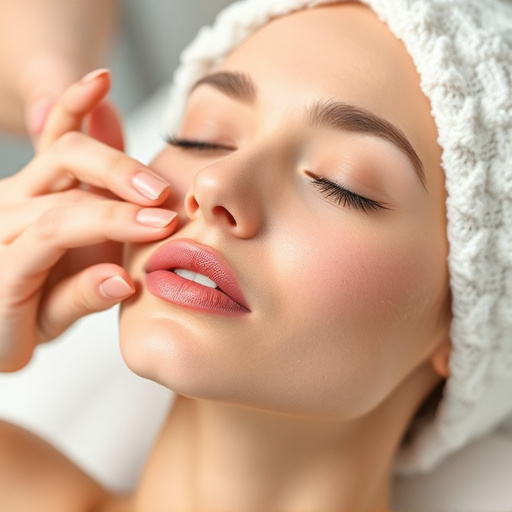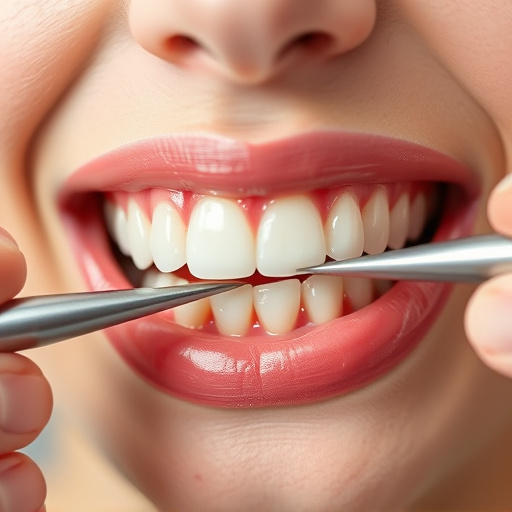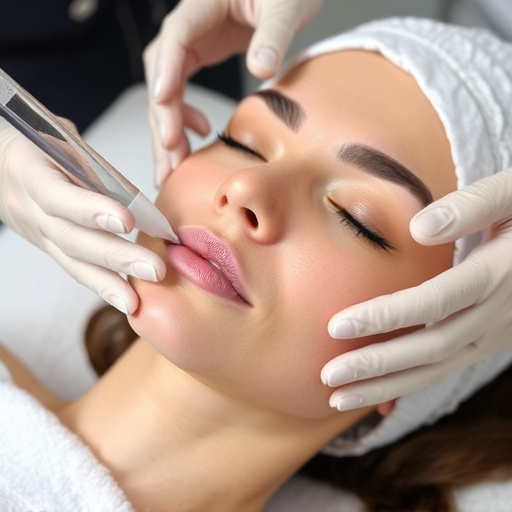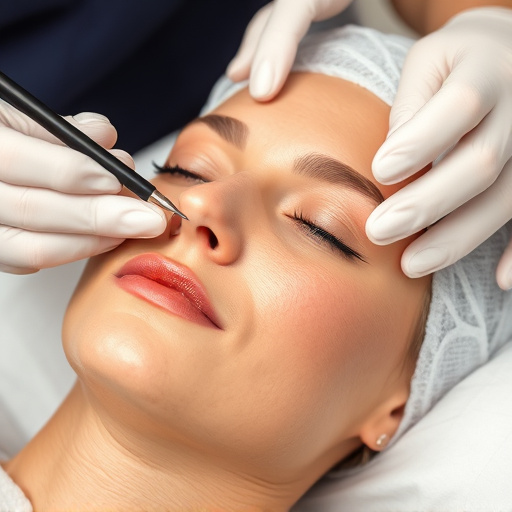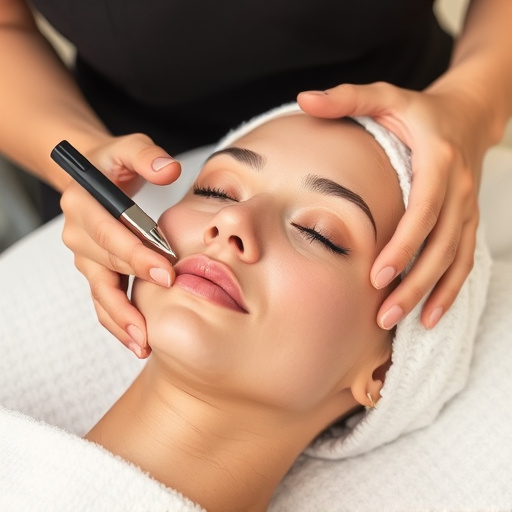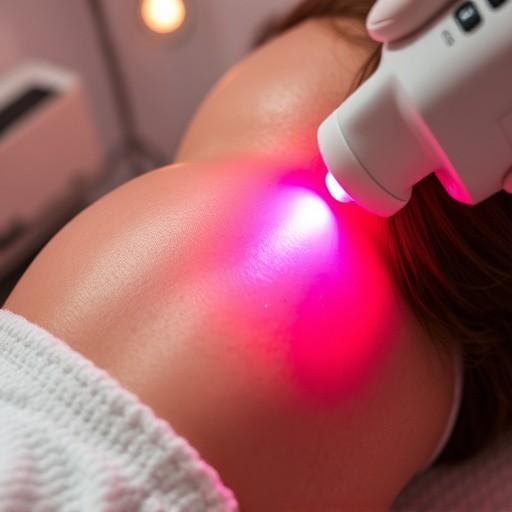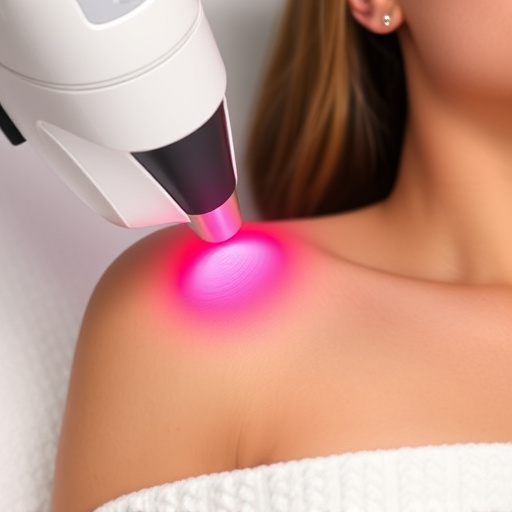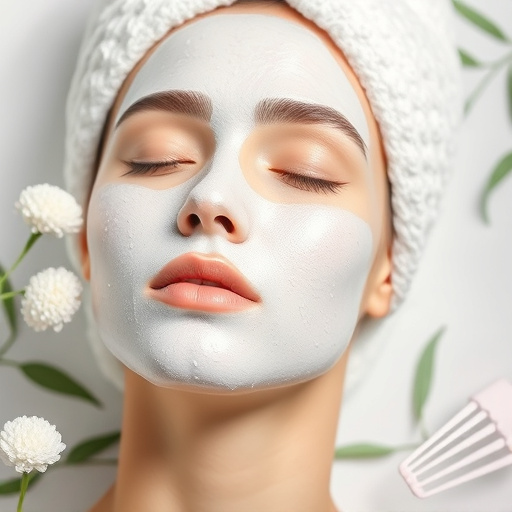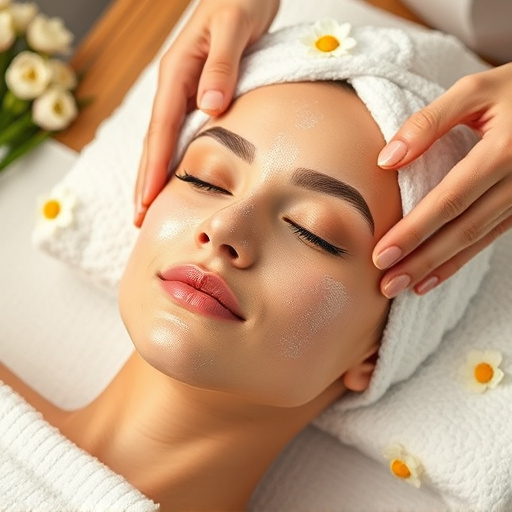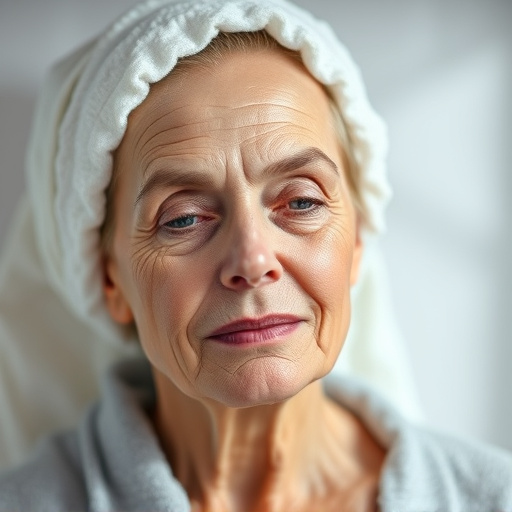Ingrown hair prevention requires understanding root causes like poor shaving techniques, harsh methods, or damaged skin from over-shaving or rough fabrics. Using alternative hair removal methods like laser treatment and maintaining a consistent skincare routine focused on protection, gentle cleansing, weekly exfoliation, hydration, and skin-tightening products is crucial for effective ingrown hair prevention.
Ingrown hairs can be an unsightly and uncomfortable issue, but building a routine around their prevention offers a long-term solution. This article guides you through understanding the causes and triggers of ingrown hairs, emphasizing the power of regular cleansing and exfoliation. Learn how to protect your skin, promote healthy hair growth, and bid farewell to unwanted bumps. By implementing these strategies, you’ll take a significant step towards achieving smooth, bump-free skin.
- Understand Ingrown Hair Causes and Triggers
- Cleanse and Exfoliate Regularly
- Protect Skin and Promote Healthy Growth
Understand Ingrown Hair Causes and Triggers
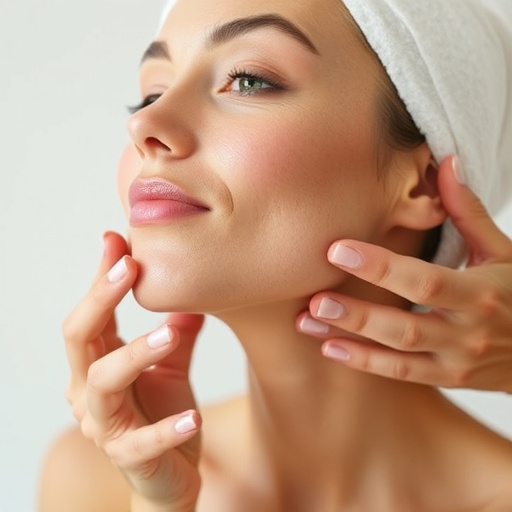
Ingrown hairs are a common skincare concern, often caused by factors like poor shaving techniques, using dull or old razors, or harsh hair removal methods. Understanding the root causes is key to preventing ingrowns and promoting healthy skin. One primary trigger is irritated or damaged skin, which can occur due to over-shaving, not exfoliating enough, or using rough fabrics against sensitive skin. Additionally, certain skin conditions like acne or eczema might contribute to ingrown hair prevention challenges.
Another aspect to consider is the type of hair removal method. While shaving is a popular choice for many, it’s important to be mindful that this process can lead to ingrown hairs if not done correctly. As an alternative, laser hair removal offers a longer-lasting solution by targeting the hair follicle, reducing future hair growth, and potentially minimizing ingrowns. Moreover, maintaining good skin health through regular exfoliation and cleansing can help prevent these stubborn hairs from developing.
Cleanse and Exfoliate Regularly

Maintaining a consistent skincare routine is key to preventing ingrown hairs. Start by cleansing your skin twice daily with a gentle cleanser suitable for your skin type. This removes dirt, oil, and dead skin cells that can contribute to hair trapping. After cleansing, incorporate exfoliation into your routine 2-3 times per week. Exfoliating helps slough off dead skin cells and unclogs pores, reducing the chances of hair growing back beneath the skin’s surface.
Consider using chemical exfoliants like AHAs (alpha hydroxy acids) or BHAs (beta hydroxy acids) for effective pore refinement. These ingredients help to break down dead skin cells and reduce inflammation, which can aid in preventing ingrown hairs. Additionally, staying hydrated through regular hydrating facials or incorporating a nourishing moisturizer into your routine can further support skin health and promote a smoother, clearer complexion.
Protect Skin and Promote Healthy Growth
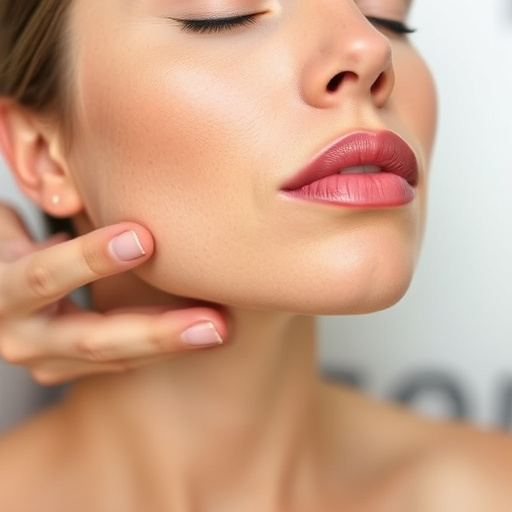
To effectively prevent ingrown hairs, it’s crucial to establish a skin care routine that prioritizes protection and promotes healthy hair growth. Start by cleansing your skin gently but thoroughly twice daily with a mild cleanser suitable for your skin type. Exfoliation is another key step; incorporate an exfoliator into your routine 2-3 times per week to remove dead skin cells and prevent hairs from trapping beneath the surface.
After cleansing and exfoliating, apply a hydrating facial or customized treatment tailored to address ingrown hair issues. These treatments can help moisturize the skin, reducing irritation and inflammations that often lead to ingrown hairs. Additionally, consider incorporating skin-tightening products into your regimen for added support in achieving smoother, healthier-looking skin.
Building a consistent routine for ingrown hair prevention is key to achieving smooth, healthy skin. By understanding the causes, regularly cleansing and exfoliating, protecting your skin, and fostering healthy growth, you can significantly reduce the occurrence of ingrown hairs. Embrace these practices as part of your daily regimen for long-lasting results in preventing ingrown hair.





